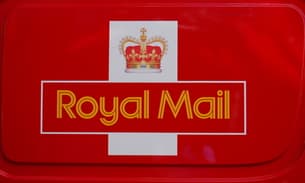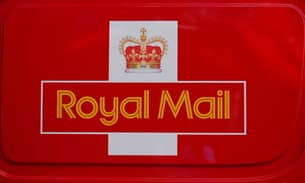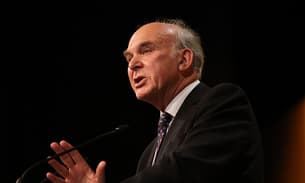
MPs attack government’s ‘unacceptable’ handling of Royal Mail float
Business secretary Vince Cable is under attack
MPs today launched a stinging attack on the government and its advisers’ handling of the Royal Mail privatisation saying it undervalued the business by £1bn.
In a severe rebuke to Vince Cable, his business department officials and its external advisers for their part in the Royal Mail sell-off, the Business, Innovation & Skills (BIS) select committee today concluded: ‘We do not believe that ministers were well-served by their departmental officials, the independent adviser or by the Shareholder Executive. Their blanket refusal to acknowledge a single mistake in spite of a critical auditor’s report does little to inspire confidence in their organisations.’
The BIS report stated that there was insufficient attention paid to ensuring taxpayers got a good deal from the sale. MPs found it ‘unacceptable’ that value for money from the sale was not a clear priority in the contract with the government’s adviser, Lazard & Co.
It noted that ‘the process of identifying investor demand at a set price delivered a level of certainty in demand but at the cost of conceding price tension to the priority investors’.
This, the committee argued, meant investors had no incentive to agree at buying Royal Mail shares at a higher price.
‘On the basis of the performance of the share price to date, it appears that the taxpayer has missed out on significant value,’ the Business committee report said.
The BIS findings chime with a similarly critical report earlier this year by the National Audit Office.
The select committee’s findings follows research by the Bureau of Investigative Journalism earlier this year which forced the government to reveal the identities of 16 investors that were given priority status and allowed to buy 22% of the company. Most private investors were unable to buy any shares in Royal Mail as the flotation was 24 times oversubscribed.
Related story: Unmasked – The city institutions given privileged status in the controversial Royal Mail flotation
Last October, the government sold 60% of the Royal Mail raising £1.98bn. Shares rose 38% on the first day of trading and nearly doubled in the weeks following its entry onto the London stock exchange.
The sale of the Royal Mail was handled by Lazard, the government’s corporate adviser, together with Goldman Sachs and UBS, who were global co-ordinators (GloCos) responsible for sounding out potential investors.
The committee today also calls for the exclusion of companies linked to government’s corporate advisers from participating in the sale of public assets.
The recommendation comes after the government disclosed that Lazard Asset Management (LAM), the investment arm of the government’s independent adviser on the controversial privatisation, was one of the 16 priority investors.
Related story: Lazard Asset Management was a Royal Mail priority investor and made £8m profit in one week
At the time, Lazard’s chief executive William Rucker denied any suggestion of a conflict of interest. He said the asset management arm of Lazard’s was in talks to receive Royal Mail shares well before Lazard’s was appointed as the government’s independent adviser and that “Chinese walls” between the corporate advisory and asset management divisions were rigorously maintained.
The MPs’ report also suggested that the government and its advisers exaggerated the dampening effect union industrial action ahead of the float would have on the Royal Mail sale price.
“While this was a significant factor for investors,” the report stated, “we believe that the Government over-emphasised the risk. The share price before, during and after the Union’s acceptance of a pay deal demonstrates that industrial relations were less of an issue for the market than they were for Government.”
Last night, business committee chairman Adrian Bailey said: ‘The Government cannot blithely dismiss as “froth”, our Committee’s concern that the low issue price of this prime public asset has cost the taxpayer around a billion pounds.’
To reduce the risk of state assets being sold off on the cheap, the committee recommends that the Shareholder Executive, the agency which oversees the UK’s investments, should be required to undertake a detailed valuation of any proposed sale so ministers and officials “have a baseline against which to subsequently judge valuations made by independent advisers”.
The recommendation appears to have been acknowledged by Cable who on Wednesday ordered an informal review into the sell-off of state assets. The review will be led by former city minister, Lord Myners.
The business select committee report was also highly critical of the failure by the government or its advisers to include a profit share or “claw-back” arrangement from the Royal Mail’s three key London property development assets. City analysts have suggested the Royal Mail property assets may have been significantly undervalued in its flotation prospectus.
A BIS spokesman said: “The committee’s views on the share price are based entirely on hindsight and ignore that we were selling 600 million shares – they found no evidence that the department or its advisers missed vital information prior to sale. The share price remains very volatile to this day – as the Business Secretary told the committee – and has dropped 25% from its high point.
“The committee also endorses the National Audit Office’s finding that there is no evidence that the Government’s independent adviser, Lazard, or any other bank involved in the sale, breached the Chinese walls that existed between different and unrelated parts of the business.
The spokesman added that the privatisation achieved its primary objectives which were to “protect the Universal Postal Service – the one price goes anywhere letter delivery service, 6 days a week – and guard against any need for Royal Mail to request additional taxpayer support.”
Last night, Royal Mail shares closed at 474p – 43% higher than the original price.




